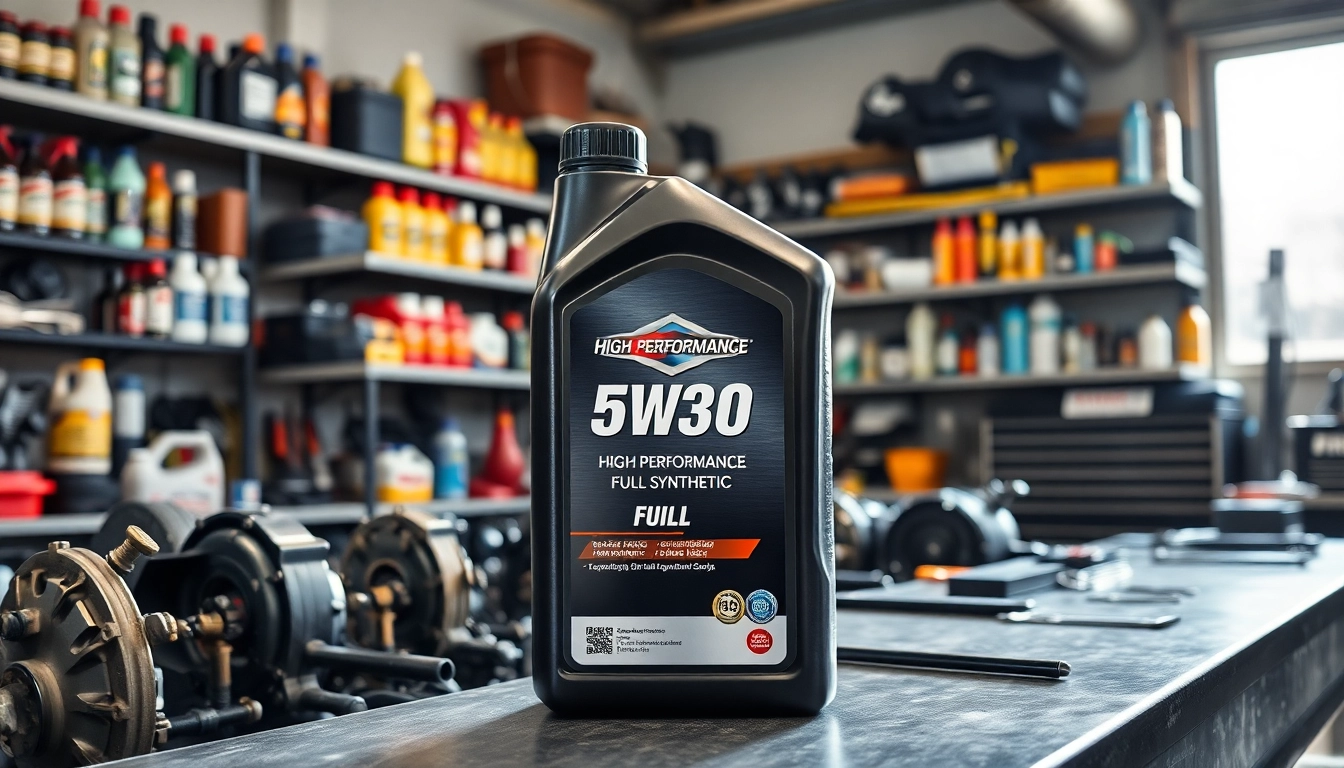Understanding 0w16 Full Synthetic Oil
What is 0w16 Full Synthetic Oil?
0w16 full synthetic oil is a specialized type of motor oil designed to optimize engine performance across various temperature ranges. The “0w” in the designation indicates its viscosity at low temperatures, meaning it flows easily even in colder conditions, while “16” defines its viscosity when the engine is at operational temperatures. Unlike conventional oils, full synthetic oils are artificially engineered from molecular structures, providing greater stability and performance in high-stress conditions.
This advanced oil formulation is becoming increasingly popular, especially among manufacturers like Toyota and Mazda. Utilizing 0w16 full synthetic oil can help reduce engine friction, improve fuel efficiency, and ensure better overall performance, particularly in vehicles designed to use this specific viscosity grade.
Benefits of Using Full Synthetic Oil in Vehicles
The advantages of using 0w16 full synthetic oil are manifold:
- Enhanced Engine Protection: Full synthetic oils contain additives that improve resistance to oxidation, reducing engine wear and extending engine life.
- Fuel Efficiency: These oils are designed to reduce friction more effectively than conventional oils, which can lead to improved fuel economy, making them an economical choice over the long term.
- Performance in Extreme Conditions: Whether in extreme heat or cold, 0w16 synthetic oil maintains viscosity and flow characteristics, ensuring reliable engine starts and operation.
- Longer Oil Change Intervals: Many modern vehicles are designed to utilize synthetic oils, allowing longer periods between oil changes compared to conventional options, which saves time and money.
Common Misconceptions About 0w16 Oils
Despite its growing popularity, several misconceptions persist about 0w16 oils:
- “Synthetic Oil is Only for New Cars”: This is a common myth. While many new cars utilize synthetic oil for its benefits, older vehicles can also benefit, provided they meet compatibility standards.
- “Synthetic Oils are Unnatural”: In fact, synthetic oils are chemically engineered for optimal performance and often outperform natural counterparts in several metrics.
- “All Synthetic Oils are the Same”: There is a variety of synthetic oils with different formulations engineered for specific performance requirements; 0w16 is tailored for specific engines and conditions.
Choosing the Right Vehicle for 0w16 Full Synthetic Oil
Ideal Vehicle Models for 0w16 Oil
0w16 full synthetic oil is primarily recommended for specific vehicle models, particularly those produced by manufacturers such as Toyota and Mazda. Examples include:
- Toyota Prius
- Toyota Camry (2018 and newer)
- Mazda3 (2014 and newer)
- Mazda CX-30
These vehicles were designed with oil specifications that take full advantage of the characteristics found in 0w16 synthetic blends, promoting efficiency and performance at various driving conditions.
How to Identify Compatible Engines
To determine whether your vehicle is compatible with 0w16 oil, consider the following steps:
- Consult Your Owner’s Manual: The first step should always be to check your vehicle’s owner’s manual, which provides specific recommendations for oil type and viscosity.
- Look for Engine Specifications: Search for engine specifications or oil requirements online, often available on the manufacturer’s website or automotive forums.
- Consult a Mechanic: If unsure, consulting a certified mechanic can provide personalized insights based on your vehicle’s performance and condition.
Seasonal Considerations for Oil Usage
While 0w16 full synthetic oil excels in both cold and moderate temperatures, seasonal changes can influence your oil choice:
- Winter: The “0w” in its name indicates excellent performance in low temperatures, facilitating quicker starts and better lubrication in colder weather.
- Summer: Ensure that your engine maintains optimal temperature management during hot summers, as synthetic oils help reduce breakdown in high temperature conditions.
How to Use 0w16 Full Synthetic Oil
Changing Your Oil: Step-by-Step Guide
Regular oil changes are vital for maintaining the health and longevity of your engine when using 0w16 full synthetic oil.
- Gather Materials: Ensure you have the necessary materials, including a new oil filter, a wrench, an oil funnel, and the appropriate amount of 0w16 full synthetic oil.
- Warm Up Your Engine: Allow your engine to run for a few minutes to warm up the oil, facilitating easier oil drainage.
- Drain Old Oil: Position a drain pan under the oil pan and remove the drain plug to let the old oil flow out completely.
- Replace the Oil Filter: Remove the old oil filter and replace it with a new one, ensuring to coat the gasket with new oil for a secure fit.
- Add New Oil: Replace the drain plug, then using a funnel, pour the new 0w16 full synthetic oil into the engine.
- Check Oil Levels: Start the engine and let it run for a few minutes; check the oil level using the dipstick, adding more oil if necessary.
Best Practices for Oil Maintenance
Maintaining oil health is crucial for optimal performance:
- Routine Checks: Regularly check your oil level using a dipstick to ensure it’s at the proper level.
- Monitoring for Contaminants: Look for any unusual debris or discolored oil which may indicate that an oil change is needed sooner than scheduled.
Monitoring Oil Levels and Performance
Monitoring your oil’s performance involves being attentive to any changes in engine behavior:
- Engine Noise: If you notice increased noise, it may signify that the oil is breaking down and requiring a change.
- Oil Change Light: Pay attention to your vehicle’s oil change light, which prompts appropriate maintenance.
Comparative Benefits of Synthetic vs. Conventional Oil
Cost vs. Longevity of 0w16 Synthetic Oil
One area where 0w16 full synthetic oil shines is in its cost-effectiveness relative to its longevity. Although the initial purchase price may be higher than conventional oils, synthetic oils often extend the duration between oil changes. This longevity often offsets the upfront investment by delivering less frequent maintenance costs.
Performance Metrics: Why Synthetic Matters
Performance metrics are crucial when evaluating oil types:
- Viscosity Stability: Synthetic oils maintain stable viscosity over a wider temperature range compared to conventional oils, providing better engine protection during extremes.
- Oxidation Resistance: Advanced additives in synthetic oils slow oxidation, preventing thickening and deposit formation, which can impair engine performance.
Environmental Impact of Synthetic Oils
From an environmental standpoint, synthetic oils often produce fewer pollutants due to more effective engine operation. Their longevity also means fewer oil change intervals, leading to reduced oil disposal and environmental waste. Therefore, transitioning to high-quality synthetic oils like 0w16 could contribute positively to sustainability.
FAQs about 0w16 Full Synthetic Oil
Is 0w16 Oil Suitable for Older Vehicles?
0w16 full synthetic oil can be suitable for older vehicles, as long as the engine’s compatibility is verified. Older engines might require a different viscosity based on wear and other factors, so refer to your owner’s manual or consult a qualified mechanic for the best recommendation.
How Often Should You Change 0w16 Full Synthetic Oil?
For vehicles using 0w16 full synthetic oil, changing intervals often depend on driving conditions and manufacturer recommendations. Typically, modern synthetic oils allow for changes every 7,500 to 10,000 miles, but always consult your vehicle’s manual for tailored advice.
Can You Mix 0w16 with Other Oil Types?
In general, mixing different oil types is not advisable as it can alter the properties and performance metrics. If necessary, it’s best to consult a professional to ensure that the final mixture meets vehicle specifications.



